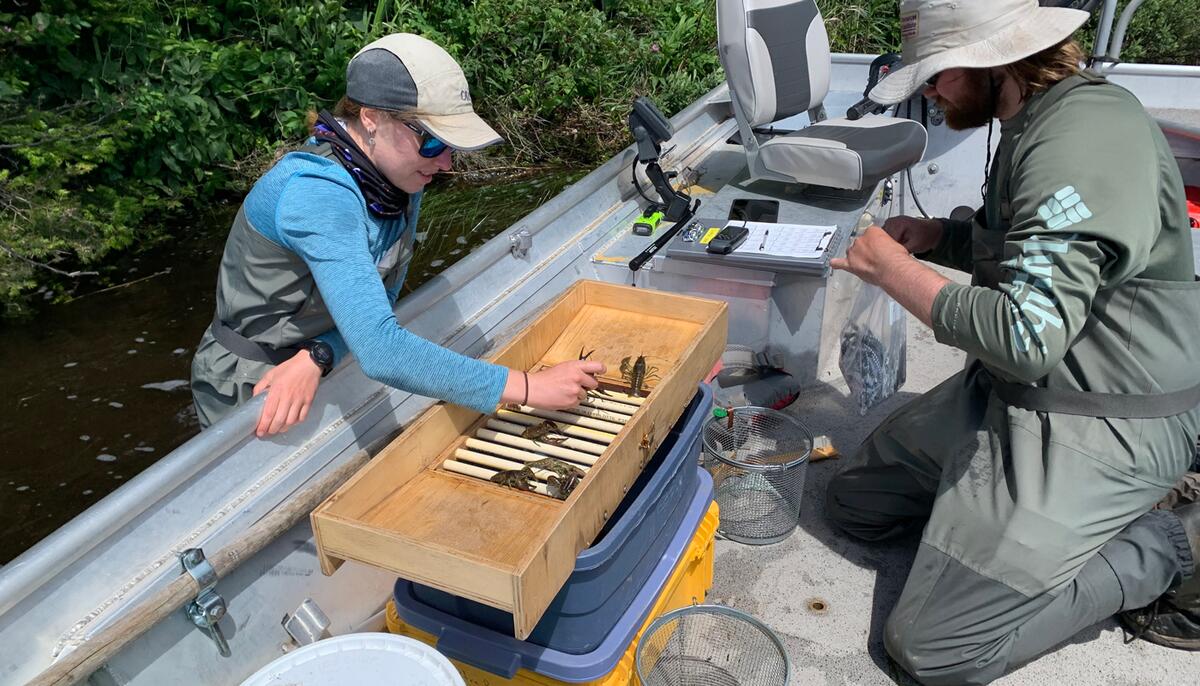
Program Overview
Research specifically focused on monitoring and understanding the impacts of climate change on various systems, especially forest and water ecosystems, to mitigate risks and develop potential adaptation strategies.
Recent Research
- Methane emissions pilot study was initiated with NRRI funding to understand the impact of greenhouse gas emissions from freshwater wetlands and peatlands.
- Mechanisms of climate-induced range shifts in bird species were revealed with a new predictive framework that leverages 29 years of NRRI bird monitoring data from the Minnesota National Forest Breeding Bird Monitoring Program.
- Decades of long-term monitoring data of wetlands, rivers & streams, and inland lakes is providing critical information to agency managers about the impacts of climate change to water ecosystems.
- Toxic harmful algal bloom research seeks to understand climate and landscape drivers responsible for the proliferation of toxic cyanobacteria in aquatic ecosystems where they have historically been absent, such as Lake Superior and the St. Louis River Estuary.
- Migration of southern flying squirrels into territory of northern flying squirrels is signaling changes to the forest ecosystem due to climate change.
Related News

We dug back into the archives to find NRRI's original crayfish research and the start of The Crayfish Lab at NRRI Duluth.

NRRI tests techniques to clean boat interiors to stop spread of invasives.

Post-doc explores treatment techniques for PFAS in food waste to remove roadblocks to energy production.

Efforts to improve neighborhood climate resilience goes hyper-local, while providing community outreach guidance.

NRRI scientists present findings on projects with broader water community.

Enthused by ‘all things science-y’ makes NRRI a good fit for this microbiologist.
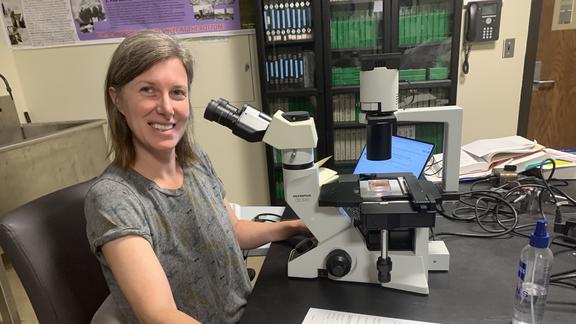
For aquatic research scientist, Holly Wellard Kelly, her favorite project is the one she’s working on.
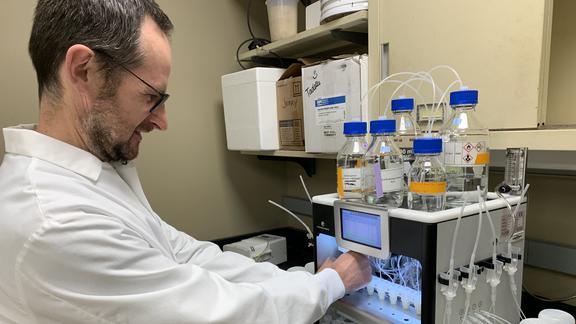
Visiting scientist from Poland taps NRRI expertise, brings perspective to PFAS research
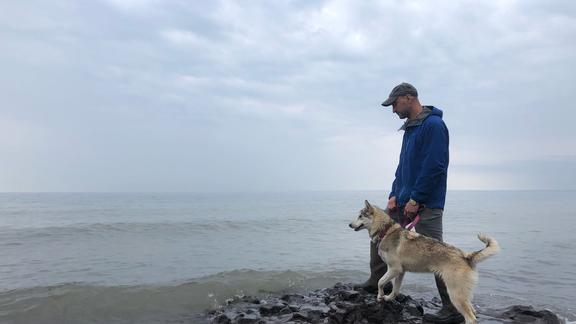
Fascination with tiny diatoms keeps NRRI scientist exploring water world.
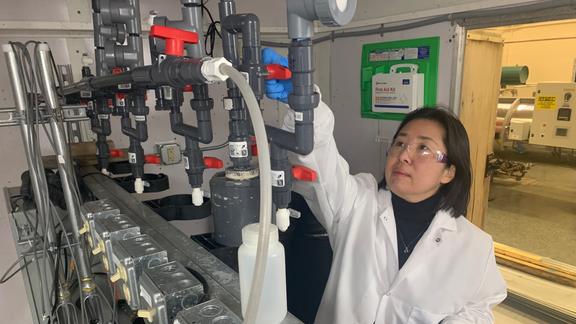
NRRI sulfate remediation technologies ready for industry, agency collaborations.
Media Coverage
- – Northland researchers look to biochar as possible climate solution – Duluth News Tribune
- – Beyond Scrubbing: Reducing Sulfate Stress from Wastewater at Minnesota Power’s Last Coal-burning Power Plant – MnDRIVE Environment